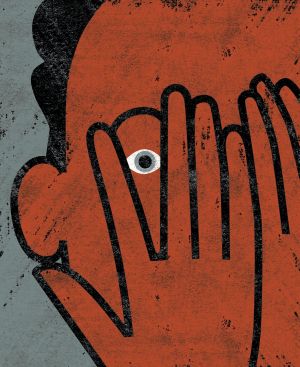
Welcome to the ezine produced by SGI Buddhists that prompts the positive, kindles the constructive, highlights the hopeful and leaves you feeling - well, up!

 The acronym EAR — for Empathy, Assertiveness and Respect — is a good way to remember the key components of successful communication, says Dr David Burns
The acronym EAR — for Empathy, Assertiveness and Respect — is a good way to remember the key components of successful communication, says Dr David Burns
Good communication involves skilful listening (Empathy), effective
self-expression (Assertiveness) and caring (Respect). So the last time you had a row, which skill was missing from your toolbox?
 Should love shyness become a recognised psychological disorder or is it simply another manifestation of social anxiety? Amy Turner reports
Should love shyness become a recognised psychological disorder or is it simply another manifestation of social anxiety? Amy Turner reports
 If you work on your happiness, writes Richard O’Connor, you
can have a different brain and be a different person.
If you work on your happiness, writes Richard O’Connor, you
can have a different brain and be a different person.
Experience changes the brain and by consciously choosing our experiences we can have some control over how it functions.
 Memory, identity and mood are closely linked, and
resurrecting a pleasant memory can help to shift a negative mind-set
Memory, identity and mood are closely linked, and
resurrecting a pleasant memory can help to shift a negative mind-set
Our memories are never static, writes Anita Chaudhuri. They change according to our present goals and aspirations.
 Perfectionism is a crime against humanity, writes Hara
Estroff Marano, concern about making a mistake makes us more likely to
fail
Perfectionism is a crime against humanity, writes Hara
Estroff Marano, concern about making a mistake makes us more likely to
fail
Success hinges less on getting everything right than on how we handle getting things wrong.
 Cultivating mindfulness isn’t only for the benefit of other
people, writes Richard O’Connor, we should also develop a compassionate
curiosity about ourselves.
Cultivating mindfulness isn’t only for the benefit of other
people, writes Richard O’Connor, we should also develop a compassionate
curiosity about ourselves.
 Located just two inches below the navel our centre, or Hara as
it's known in Eastern traditions, is a powerful physical and spiritual
energy point.
Located just two inches below the navel our centre, or Hara as
it's known in Eastern traditions, is a powerful physical and spiritual
energy point.
Anger, stress and emotional pain can leave us feeling distinctly off-centre. Anastasia Stephens looks at some techniques that help to re-connect us to our Hara, boosting our overall health and sense of well-being.

